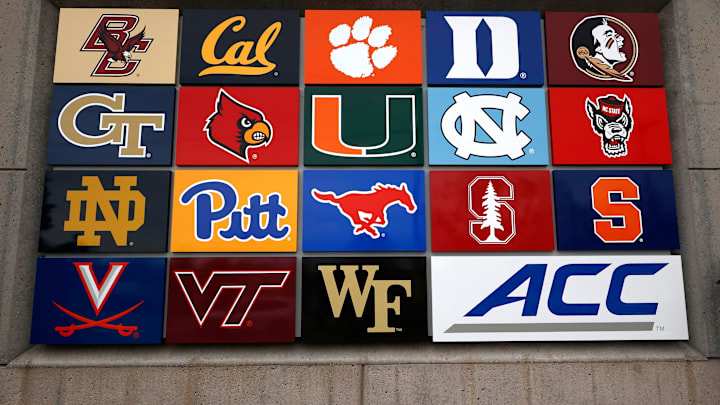A federal judge has approved the multi-billion-dollar House settlement, and moving forward, that will mean seismic changes for the Syracuse Orange and its peers around the country.
For the first time ever, schools will be able to start paying their athletes directly, and this settlement is expected to go into effect on July 1. Experts say the House settlement - which actually resolves three antitrust lawsuits at the federal level - is really just the beginning of a new dawn in college sports, because this settlement is expected to result in many more lawsuits over various things.
As part of federal judge Claudia Wilken's decision to approve the House settlement, per media reports, the NCAA will pay close to $2.8 billion in back damages over the next decade to athletes who played in college from 2016 through the present day.
What's more, commencing with the 2025-26 sports season, schools can pay their athletes directly with up to $20.5 million in revenue-sharing, and that amount is likely to increase every year thereafter amid the 10-year deal.
It's a new day in college athletics.https://t.co/0MLEGkdVav pic.twitter.com/Rnb1xxzqnD
— The ACC (@theACC) June 7, 2025
SU Athletics has said that it plans to pay that $20.5 million amount in 2025-26. Syracuse Orange athletics director John Wildhack said earlier this year that those funds will be weighted toward football and men's/women's basketball, although some money could go to Olympic sports as well.
On3 national reporter Pete Nakos has said that, generally speaking regarding the $20.5 million cap in 2025-26, football is expected to garner 75 percent, then men's basketball at 15 percent, women's basketball at 5 percent and other sports totalling 5 percent.
The Syracuse Orange will soon begin paying its athletes directly.
Also as part of the House settlement's approval, per reports, there are expected to be roster limits, such as 105 for football, and 15 for men's and women's basketball. How that might impact 'Cuse sports programs remains to be seen.
With this settlement, athletes can still earn name, image and likeness deals from third parties. Currently, there are three NIL collectives supporting Syracuse Orange players, and they are Orange United, SU Football NIL and Athletes Who Care.
Wildhack, in early March, said that come July 1, not all three of these third-party NIL organizations will be in existence. I've reached out multiple times to a spokesperson with SU Athletics for additional clarity on the NIL streamlining and other topics related to revenue-sharing, but my e-mails haven't been returned.
The College Sports Commission has been created to make sure that schools adhere to the new rules that are a part of the House settlement. Major League Baseball executive Bryan Seeley is the new CEO of this commission, according to reports and X posts.
A clearinghouse is being established, known as NIL Go, and all third-party deals of at least $600 must be given the green light by this clearinghouse. How that might affect third-party NIL deals from Orange United, SU Football NIL and Athletes Who Care also remains to be seen.
I'll be curious to see if SU Athletics discusses publicly what it will share in revenue with each 'Cuse sports team. I've seen some reports state that it's possible athletics departments could cut staff, or even Olympic sports, as a result of revenue-sharing.
A group of Olympic sports coaching associations have released the following statement regarding the House settlement approval.
— Amanda Christovich (@achristovichh) June 7, 2025
They’re asking for Congressional intervention to protect their sports. pic.twitter.com/wyHYba1g8G
SU Athletics has launched a three-year, $50 million fund-raising campign that will focus on player retention and attraction. Hopefully, that campaign and third-party NIL deals will help the Syracuse Orange remain competitive amid revenue-sharing.
NEW EXTRA POINTS:
— Matt Brown (@MattBrownEP) June 7, 2025
Now that the massive and historic House settlement is finally officially approved? What changed?
uh, not that much, really. The big questions haven't been solved yet. pic.twitter.com/wX0meINYpv
Now, there will be ongoing discussions and potential litigation, as well as potential participation from lawmakers, surrounding the issue of whether college athletes should be deemed employees of their schools. Also, there could be litigation should the majority of revenue-sharing at schools go to men's sports teams, and whether that might violate Title IX.
Additionally, what's to come of the NCAA? I've long said this organization is incompetent. And as far as I can tell, with the House settlement, the NCAA's power and authority over college sports is becoming less and less. But this organization still runs the men's and women's basketball NCAA Tournaments, among other events, so I'm not so sure the NCAA is completely going away anytime soon, even if I wish it would.
In summation, judge Wilken approving the House settlement is historic. College athletics will never be the same. A lot of details need to be ironed out, and more litigation could be on the way. I'll continue to monitor this ongoing, massive issue and how it impacts our beloved Syracuse Orange.
